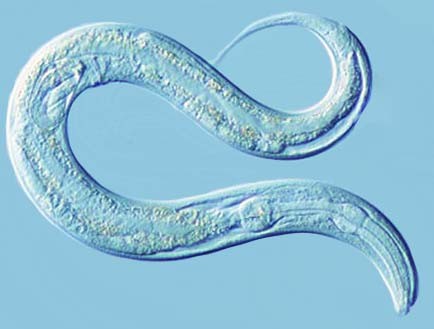The microscopic worm Caenorhabditis elegans is helping scientists learn about the effects of prolonged spaceflight on aging in humans.
An international research team sent C. elegans samples on board the International Space Station for nine days and subsequently analyzed the samples back on Earth to see how the processes of development and aging differ in space.
They found that microgravity lowered the buildup of toxic proteins in aging muscles. Furthermore, a group of genes were expressed at lower levels and, after returning to Earth, these worms lived for longer.
“We identified seven genes, which were down-regulated in space and whose inactivation extended lifespan under laboratory conditions,” said study co-author Nathaniel Szewczyk at the University of Nottingham in a media release.
The genes may alter the worm’s metabolism and help it adapt to changes in its environment.
“Most of us know that muscle tends to shrink in space,” Szewczyk said. “These latest results suggest that this is almost certainly an adaptive response rather than a pathological one.”
This research is part of an ongoing project called the first international C. elegans experiment (ICE-FIRST). It suggests that aging is altered via neuronal and hormonal responses to environmental cues in space.
“Counter-intuitively, muscle in space may age better than on Earth,” Szewczyk said. “It may also be that spaceflight slows the process of aging.”
C. elegans is used as a research model because it has many essential biological characteristics in common with humans. It can live and reproduce for at least six months in space, and suffers from muscle loss under similar conditions to humans.
The study was published in the online journal Scientific Reports on July 5.
The Epoch Times publishes in 35 countries and in 19 languages. Subscribe to our e-newsletter.






